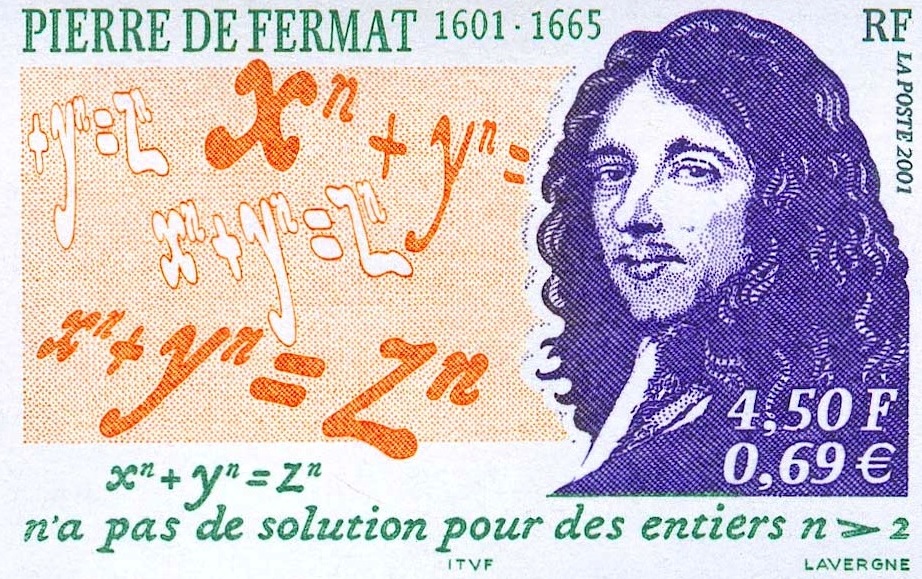
An area of major interest in this program is the study of the Galois group of the algebraic closure of the rationals. The methods of study of this group involves its representations in other algebraic, geometric or analytic objects. This leads to connections with algebraic groups, analytic varieties (real, complex and p-adic), and Lie theory. The interconnections are deep, and progress in number theory requires a more profound understanding of each of these connections. For example, the conjecture of Shimura-Tanyama-Weil that all elliptic curves over the rationals are modular implies Fermat's Last Theorem.
In recent years, due to the availability of powerful computers and software such as MAPLE, CAYLEY and PARI, large scale computations have proven themselves extremely important in making and verifying conjectures. Computational algebra is rapidly evolving with the production of better and faster algorithms for making computations.
The participating universities contributing to this Institute have many people working in currently active areas of research in number theory, elliptic curves, arithmetic geometry, algebraic groups, group theory and Lie theory, commutative algebra, representation theory of groups and Lie algebras, Galois theory, profinite groups and computational algebra, representation theory of associative algebras, homologic and categoric algebra, ring theory and modules.
Many members of the group are also members of CICMA (Centre interuniversitaire en calcul mathématique algébrique), an inter-university research center that organizes many scientific activities.
This program is designed for strong graduate students with an interest in algebra, group theory, number theory (algebraic and/or analytic) and algebraic geometry. Both theoretical and computational aspects of these topics are covered.
There are no formal prerequisites beyond those required by the departments. However, the following guidelines should be followed and courses selected in consultation with an advisor in the program.
All students are expected to acquire the fundamentals of algebra, such as are contained in beginning level graduate courses at any of the participating universities (e.g., group theory, commutative algebra, Galois theory, number theory).
Students are then expected to take a number of more specialized courses (in their areas of interest and adjacent or complementary areas).
Students are encouraged to participate in advanced seminars and courses in their areas of specialty.
The course will follow chapter II of Hartshorne's book Algebraic Geometry, as follows: we will study sheaves of rings on topological spaces, affine schemes, projective schemes, coherent and quasi-coherent OX-modules on a scheme X, differentials.
This course will be an introduction to the theory of modular forms over the complex number. We shall cover the following topics: the modular group and the upper half-plane, Eisenstein series, Hecke operators, L-functions, modular curves, geometric interpretation of modular forms. If time allows it, further topics (Galois representations or Eichler--Shimura relations) will be considered. Knowledge of complex analysis, Riemann surfaces, and sheaves is useful but not necessary.
This course centers around the proofs of central finiteness results in arithmetic. We will start from scratch from the basic notion of heights on varieties and basic properties thereof. Among other topics, we will go through the proof of the finiteness of the number of solutions to integral and rational points on higher genus curves (Faltings' theorem): in the latter case we will present the proof of Vojta in the version given by Bombieri. One of the main references will be the book of Bombieri—Gubler "Heights in Diophantine Geometry". A more detailed outline with a webpage for the course will follow shortly.
The final exam will consist of presentations of selected topics, which we will agree on towards the end of the course.
Time/Location: Tuesday, 17:45-20:15, Concordia Library Building 9th floor, CICMA room.
Corps (extensions, théorie de Galois, corps finis), Anneaux (noethériens et artiniens, radicaux, idéaux premiers et maximaux, localisation, théorème de Wedderburn, Nullstellensatz), Modules (lemme de Schur, modules projectifs et injectifs, suites exactes, produit tensoriel, catégories).
• Categories and functors, adjoint and equivalence, tensor products, localization of rings and module, limits.
• Affine schemes. Integral extensions.
• Noetherian and artinian rings and modules. Hilbert’s basis theorem, Noether’s normalization lemma and Hilbert’s Nullstellensatz. The affine space.
• Representations of finite groups.
Dedekind domains and unique factorization of prime ideals. Finiteness of the class group and Dirichlet’s Unit Theorem. Local fields. Selected other topics as time allows.
Distribution des nombres premiers. Fonction zêta de Riemann et fonctions-L de Dirichlet. Le théorème des nombres premiers, et de Bombieri-Vinogradov. La répartition des nombres premiers consécutifs.
• Representations of finite groups.
• Semi-simple rings.
• Central simple algebras and the Brauer group.
• Projective, injective and flat modules.
• Homological algebra.
Anneaux commutatifs, idéaux premiers, rudiments de géométrie algébrique, Nullstellensatz de Hilbert, localisation, complétion, théorie de la dimension.
Groupe des points d’une courbe elliptique. Théorème de Mordell-Weil. Groupes de Selmer et de Tate-Shafarevich. Les expansions de Fourier des formes modulaires et l’idée de modularité. Applications aux équations diophantiennes.
Anneaux commutatifs et leurs modules. Localisation : idéaux premiers, racine d'un idéal, anneaux et modules de fractions, anneaux locaux. Dépendance entière: clôture intégrale, théorème de montée. Anneaux et modules noethériens, anneaux de polynômes sur un anneau noethérien. Ensembles algébriques affines, théorème des zéros de Hilbert, ensembles algébriques irréductibles et idéaux premiers, propriétés des courbes planes, dimension des variétés. Applications.